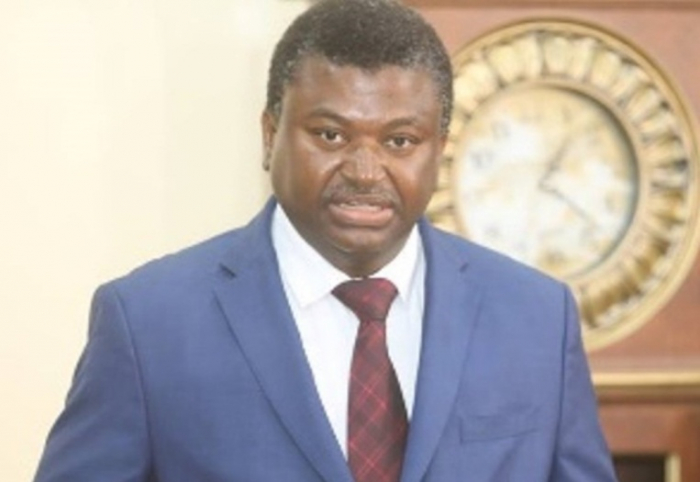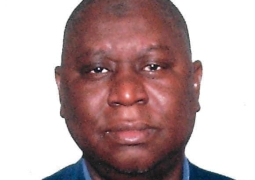
The Covid-19 was first discovered in The Gambia on 17 March, 2020 after a Bangladesh, who travelled from outside the country and tested positive for the virus.
According to the 363rd COVID-19 situational reports, The Gambia confirmed 9,715 cases; 78 active cases; 9,315 people recovered and 322 patients died since the disease entered the country in 2020.
However, family members of mentally challenged women said despite the Ministry of Health’s (MOH) and World Health Organisation’s (WHO) COVID-19 safety precautions and recommendations, they found it tough to have their mentally challenged women adhere to the recommendations due to their mental deficiency.
Speaking to The Point exclusively, Pa Lamin Jatta, resident of Bumsumbala, who has a mentally challenged daughter (name withheld), said mentally challenged women are so vulnerable to the coronavirus disease because they cannot adhere to the COVID-19 safety precautions and no amount of protection was provided for them.
Jatta said before the coming of the disease, his daughter often goes to the market without restraint but during the tense period of the pandemic, he encountered challenges with her regarding going out as she was vulnerable to the disease.
“Initially I attempted to restrict her at home so that she is not contracted with the disease but I could not sustain it because I used to go out to provide basic needs for her and the family,” he said.
The moment Gambia registered the first Covid-19 case, the Ministry of Health (MOH) recommended all to wear facemasks, observe social distancing and be washing hands with soap frequently to prevent the spread of the disease.
However, Mr. Jatta said his daughter never wanted to adhere to the safety precautions due to her condition. “That’s why mentally challenged people are so exposed to Covid-19”
He argued that since the pandemic emerged in the country, the government has helped many institutions and families but mentally challenged persons are totally ignored, “Government is not doing anything for them. They are neglected,” he added.
Basiru Secka, a coffee vendor at Busumbala Market who is close to a mentally challenged woman, said the pandemic has seriously affected her, especially during the most fearful times of the disease.
He explained that the mentally challenged woman stays at the market daily just to beg for remnant food from people who come to buy food from vendors. But at some point she was not getting that at all as many were not buying foods from vendors.
“She could be vulnerable to Covid-19 because people often give her leftover foods after buying from the vendors. She often used spoons that have been used by others without washing,” he said.
The coffee vendor opined that there is a need for the government to take all mentally challenged people to the psychiatric hospital for treatment.
Meta Baldeh, a sister to a mentally challenged woman (name withheld) in Farato said the deadly disease has affected all and the mentally challenged persons are no exception. She said her sister often goes around the market without observing the Covid-19 safety precautions.
“I often attempt to stop her from going out to the streets, particularly during the fearful period of the pandemic in 2020, but she forces herself out. This is not safe because she could get infected with virus unnoticed,” she said.
Mrs. Baldeh said at some point she found it difficult to sustain her family and care for the mentally challenged woman due to the economic meltdown as a result of the Covid-19.
Asked whether her sister has been tested or vaccinated, she replied in the negative.
Meta called on the government to support the mentally challenged people, especially in this trying times. “I have to struggle to get food for my family and get her basic needs but the government never helped us.”
Meanwhile, The Point could not reach the family of the third mentally challenged woman who often spent every night at Westfield Junction but talked to a vendor who is familiar with the mentally challenged lady.
Sulayman Bah, said: “The mentally challenged woman spends every night here (Westfield Junction). This is serious especially in the Covid-19 era.”
He added: “She comes with food and I do not know where she gets it, but she oftentimes, she asked me for coffee.”
“The mentally challenged people are really suffering because I often see them begging for food all around and just recently one of them came here and he was wounded. He smelled too bad. We had to drive him away,” he stated.
Conversely, Bah said government should accommodate mentally challenged persons; provide them with medication and conduct regular Covid-19 tests on them to know their status.
Contacted for comment about the mentally challenged people in the society, the village head of Sinchu Allage, Alhagie Salou Ceesay said there is a great need for the masses to consider, appreciate and care for mentally challenged people (women).
“Mentally challenged persons generally should be taken to psychiatric hospitals for treatment rather than leaving them at home or streets” he suggested.
Fatou M. Jawo, lawyer and activist said: “Everyone under the law is entitled to the equal protection, guarantee and promotion of his or her rights by the state. The laws, especially the constitution guarantees our right to health and life and the mentality challenged are no exception because the law doesn’t discriminate against anyone regardless of your status or gender.
Ms Jawo further said the Disability Act, also obliges the state to make people living with disabilities a priority when it comes to the enforcement of their rights as vulnerable people.
“Therefore, the mentally challenged have a right to be accorded full protection against this pandemic just like the rest of the people and other vulnerable groups are entitled to be protected,” he added.
Gibril Gando Baldeh, senior risk communication and community engagement officer at MOH, admitted that the mentally challenged women are highly vulnerable to Covid-19 as they cannot adhere to the safety precautions of coronavirus due to their disability.
He said MOH has a plan to reduce the vulnerability of mentally challenged women, while revealing that the ministry has planned to provide psychiatric care to the rural area to ensure mentally challenged persons, especially women have professional mental healthcare.
“MOH definitely has plans to reduce the vulnerability of such disable people in society through our mental health programme and also we planned to extend this service,” he added.
However, he said vaccinating mentally challenged women in streets and markets is difficult with a insufficiency of vaccines in the country, but added regardless of the challenge MOH will put plans to vaccinate such people if vaccine is available and abundant.





